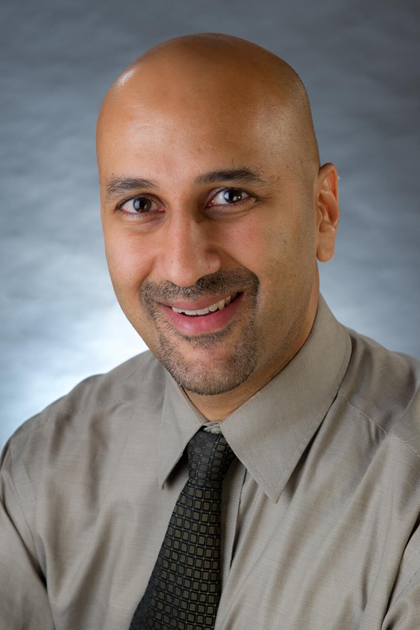Over a hundred federally (NIH and NSF) funded basic sciences laboratories at Columbia University are probing fundamental questions in biology, chemistry, and physics. Advances in basic science have inspired advances in medicine for centuries. Sometimes the medical benefit of discoveries is unanticipated. Few thought, for instance, that the 1857 discovery of the microbial basis of fermentation would lead to the germ theory of disease. Sometimes benefits are more immediately evident. Particle physicists in the 1950’s quickly appreciated the potential of particle beams and pioneered new cancer therapies. Physicians have been an integral part of the distinguished history of basic science discovery. Dr. Michael Brown and Dr. Joseph Goldstein, Nobel laureates, physicians and discoverers of the LDL receptor, recently observed: “Ambitious young physicians juxtaposed to cutting-edge basic scientists can themselves make fundamental discoveries.”
Prior contact with a laboratory will help you make the best use of your Scholarly Project time to develop interesting hypotheses, experimental approaches, and results. We encourage you to attend research seminars on campus – early and often. We also offer formal seminar opportunities (e.g. Seminars in Research at P&S Series and the Medical Scholars Seminar Series) to expose you to exciting research and to hone your scholarly questions and communication skills.
TRACK DIRECTOR
 Dr. Utpal Pajvani, M.D., PH.D. Associate Professor of Medicine in the Division of Endocrinology at Columbia University, is a physician- scientist with clinical and research focus in Type 2 Diabetes and related metabolic diseases. He graduated from the Massachusetts Institute of Technology with a degree in Biology in 1996, then earned M.S. (2001), M.D. (2005) and Ph.D. (Department of Cell Biology, 2005) degrees from the Albert Einstein College of Medicine. Dr. Pajvani completed his internship and residency training and is board certified in Internal Medicine (2007) and fellowship in Endocrinology, Diabetes & Metabolism (2011), both at the Columbia University Medical Center.
Dr. Utpal Pajvani, M.D., PH.D. Associate Professor of Medicine in the Division of Endocrinology at Columbia University, is a physician- scientist with clinical and research focus in Type 2 Diabetes and related metabolic diseases. He graduated from the Massachusetts Institute of Technology with a degree in Biology in 1996, then earned M.S. (2001), M.D. (2005) and Ph.D. (Department of Cell Biology, 2005) degrees from the Albert Einstein College of Medicine. Dr. Pajvani completed his internship and residency training and is board certified in Internal Medicine (2007) and fellowship in Endocrinology, Diabetes & Metabolism (2011), both at the Columbia University Medical Center.
Dr. Pajvani has been on the faculty of Columbia University since 2011. He is a teaching attending on the inpatient and outpatient Endocrinology and General Medicine services of the New York Presbyterian Hospital, and sees patients at the Naomi Berrie Diabetes Center at Columbia University. Dr. Pajvani’s research focuses on the role of developmental pathways in the regulation of Type 2 Diabetes and Non-Alcoholic Fatty Liver Disease, and the use of existing therapeutic agents in other scientific areas in novel applications to ameliorate obesity-induced complications including cancer. He has received intramural and NIH support for his research and has mentored medical and graduate students as well as postdoctoral and clinical fellows. He will help you identify mentors and develop your research interests.
Melanophages Co-Stain Tumor Markers In Metastatic Melanoma Treated With T-Vec
Student: Claire-Audrey Bayan Mentor: Larisa Geskin Track: Basic Science Year: 2019...
Studying the Protective Effect of Soluble Fiber against Pathogen Colonization in a Critically Ill Salmonella Murine Model
Student: Yichun Fu Mentor: Daniel Freedberg Track: Basic Science Year:...
Probing a Novel Familial Giant Lipomatosis Syndrome with Genetics
Student: Jacqueline de Vegvar Mentor: Kwame Anyane-Yeboa Track: Basic Science Year:...
Proteasome Derived Spliced Proteins
Student: James DiCarlo Mentor: Alejandro Chavez Track: Basic Science Year: 2019 ...
Reducing mitochondrial dysfunction in atrial fibrillation decreases vascular dysfunction
Student: Parmanand Dasrat Mentor: Elaine Wan Track: Basic Science Year:...
Intestinal and lung mucosal sites are reservoirs for naïve T cells in infancy and childhood
Student: Margot Yopes Mentor: Thomas Conors and Donna Farber Track: Basic Science Year:...





